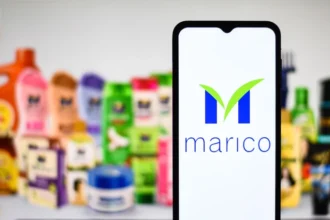Bengaluru, India – Flipkart’s quick-commerce arm is gaining serious momentum under the leadership of Kabeer Biswas, who joined the Walmart-owned e-commerce giant earlier this year. As the company doubles down on ultrafast delivery, Biswas is spearheading the rapid scale-up of Flipkart Minutes, which aims to become a formidable player in India’s growing quick-commerce market.
Within just months of his appointment, Biswas has led Flipkart Minutes to double its business every 45 days, signaling strong traction in a competitive space dominated by the likes of Blinkit, Swiggy Instamart, and Zepto. Now, Flipkart is preparing to roll out its quick-commerce services nationwide, with a sharp focus on tier-2 and tier-3 cities — an underserved segment in the current landscape.
800 Dark Stores by Year-End
To support this aggressive growth plan, Flipkart aims to establish 800 dark stores across India by the end of 2025, significantly expanding its fulfilment capabilities. These dark stores—localized warehouses dedicated to fulfilling online orders quickly—are central to the company’s ability to promise deliveries in under 15–30 minutes.
“Our model is built on scale, speed, value, and deep market penetration. We’re not just replicating what others are doing in metros — we’re building a model that works just as efficiently in cities like Nashik, Bhilai, and Madurai,” said Kabeer Biswas.
Focus on Non-Metro Markets
While competitors have focused their efforts on major metros, Flipkart Minutes is taking a differentiated route by tapping into the next wave of digital buyers emerging from smaller cities. These regions are seeing rapid smartphone adoption and rising disposable incomes, making them ripe for quick-commerce growth.
Flipkart is leveraging its existing logistics, last-mile delivery network, and supply chain expertise to gain a competitive edge in these geographies. With its vast warehouse infrastructure already in place, the company believes it can scale quickly without compromising on delivery time or product availability.
The Walmart Backing Advantage
As a Walmart-owned company, Flipkart has access to global best practices in supply chain optimization, inventory management, and customer experience. The deep pockets of its parent company also enable it to make long-term bets, absorb initial burn, and still prioritize unit economics and sustainable growth.
“Quick commerce isn’t just about 10-minute deliveries,” Biswas added. “It’s about consistent reliability, wide assortment, and hyper-local relevance — especially in regions that haven’t had access to this level of convenience before.”
The Bigger Picture: Flipkart vs. Quick-Commerce Rivals
India’s quick-commerce market is witnessing explosive growth, with players like Blinkit (owned by Zomato), Zepto, and Swiggy Instamart fiercely competing for market share. However, while the urban market is quickly becoming saturated, Flipkart’s rural and semi-urban push gives it a first-mover advantage in these territories.
Analysts suggest that Flipkart’s approach could redefine the quick-commerce narrative in India by democratizing instant delivery services for millions of new internet users outside major cities.






